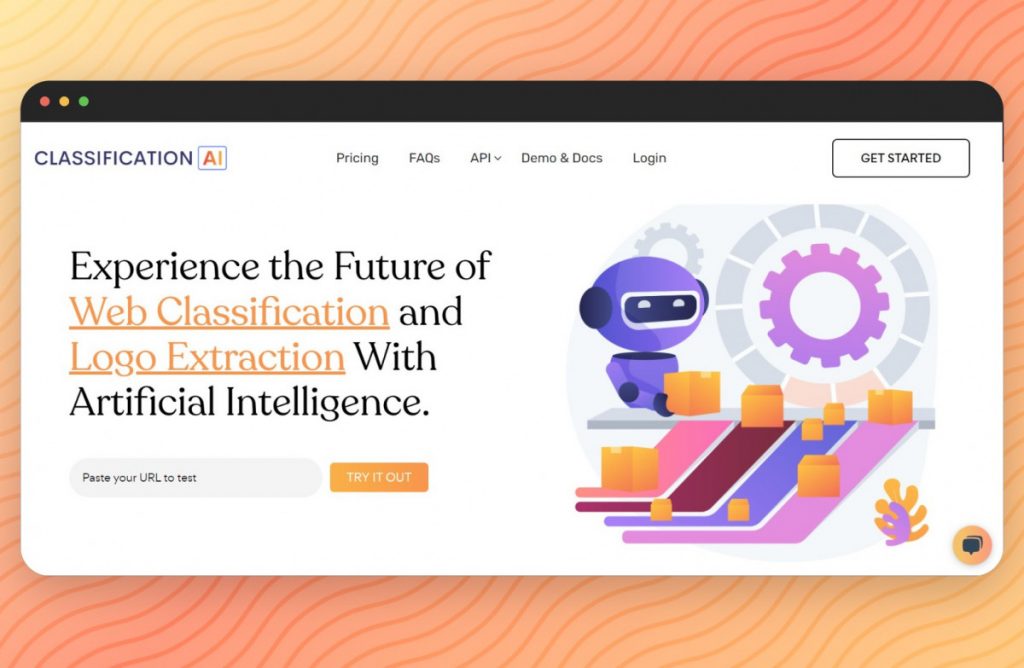URL Classification API is a powerful tool that provides developers with the ability to classify URLs based on their content and purpose. In this article, we will explore what a URL Classifications API is, how it works, and the benefits it offers. Whether you are a developer looking to enhance your application’s security or a business owner wanting to filter and categorize URLs, this article will provide you with valuable insights.
What is a URL Classification API?

A URL Classification API is an application programming interface that allows developers to analyze and classify URLs based on their content and purpose. It leverages machine learning algorithms and natural language processing techniques to determine the category or type of a given URL. This categorization can help in various areas, such as cybersecurity, content filtering, targeted advertising, and more.
Traditionally, classifying URLs required manual effort, with human reviewers visiting each URL and categorizing them based on their content. However, with the URL Classification API, this process can be automated, saving time and resources.
How does it work?
The URL Classification API works by analyzing the URL and its associated metadata, such as the domain name, page title, and content. It leverages machine learning algorithms trained on vast amounts of labeled data to determine the most appropriate category for each URL.
To use the URL Classifications API, developers need to send an HTTP request to the API endpoint, along with the URL they want to classify. The API will then process the URL and return a response containing the assigned category or type.
Common Use Cases of URL Classification API
The URL Classifications API serves a wide range of use cases across various industries. Let’s explore some of the most common use cases:
1. Cybersecurity and Threat Detection
URL Classifications API can be used for cybersecurity purposes, such as detecting malicious or phishing URLs. By analyzing the content and metadata of a URL, businesses can determine if it poses a security risk and take appropriate actions to protect their systems and users. This helps in preventing cyberattacks, data breaches, and other security threats.
2. Content Filtering and Parental Control
In environments where content filtering and parental control are essential, the URL Classification API can be invaluable. By categorizing URLs based on their content, businesses and individuals can filter out inappropriate or unwanted websites. This ensures a safer and more controlled online experience for users, especially children.
3. Targeted Advertising and Personalization
URL Classification API can also be leveraged for targeted advertising and personalization. By categorizing URLs, businesses can gain insights into user interests and preferences. This information can then be used to deliver personalized advertisements and recommendations to users based on their browsing habits and the type of content they engage with.
4. Brand Monitoring and Reputation Management
URL Classification API can assist in brand monitoring and reputation management. By categorizing URLs that mention a particular brand or company, businesses can keep track of their online presence and reputation. This allows them to proactively address any negative content or leverage positive mentions to enhance their brand image.
5. Compliance and Regulatory Requirements
In industries with strict compliance and regulatory requirements, the URL Classification API can help ensure adherence to these standards. By categorizing URLs based on their content and purpose, businesses can identify and flag any URLs that violate compliance policies. This helps in maintaining regulatory compliance and avoiding potential legal issues.
Benefits of using a URL Classification API
Using a URL Classifications API offers several benefits, including:
- Automation and Efficiency: Manual URL classification can be a time-consuming and labor-intensive process. By automating this task with the URL Classifications API, businesses can save valuable time and resources.
- Enhanced Security: The URL Classifications API helps in identifying and flagging potentially malicious or phishing URLs, enhancing overall cybersecurity measures.
- Improved Content Filtering: By categorizing URLs, businesses can filter out inappropriate or unwanted content, ensuring a safer and more controlled online experience for users.
- Better Targeting and Personalization: URL classification provides valuable insights into user interests and preferences, enabling businesses to deliver targeted advertisements and personalized recommendations.
- Compliance and Risk Mitigation: The URL Classifications API helps businesses maintain compliance with regulatory requirements and mitigate potential risks associated with non-compliant URLs.
To make use of it, you must first:

- Go to URL Classification API and simply click on the button “GET STARTED” to start using the API.
- After signing up in Classification.ai, you’ll be given your personal API key. Using this one-of-a-kind combination of numbers and letters, you’ll be able to use, connect, and manage APIs!
- Employ the different API endpoints depending on what you are looking for.
- Once you meet your needed endpoint, make the API call by pressing the button “Run” and see the results on your screen.
Conclusion
The URL Classifications API is a powerful tool that allows developers to analyze and categorize URLs based on their content and purpose. By leveraging machine learning algorithms, it offers benefits such as automation, enhanced security, improved content filtering, better targeting and personalization, and compliance with regulatory requirements. Integrating the URL Classifications API into your application is a straightforward process, and it can provide significant value by automating URL classification and enhancing various aspects of your business.
If you are a developer looking to enhance your application’s security or a business owner wanting to filter and categorize URLs, the URL Classifications API is a solution worth exploring. Try it out today and unlock the power of automated URL classification.
Read More: Vehicle database api driving automotive innovation

